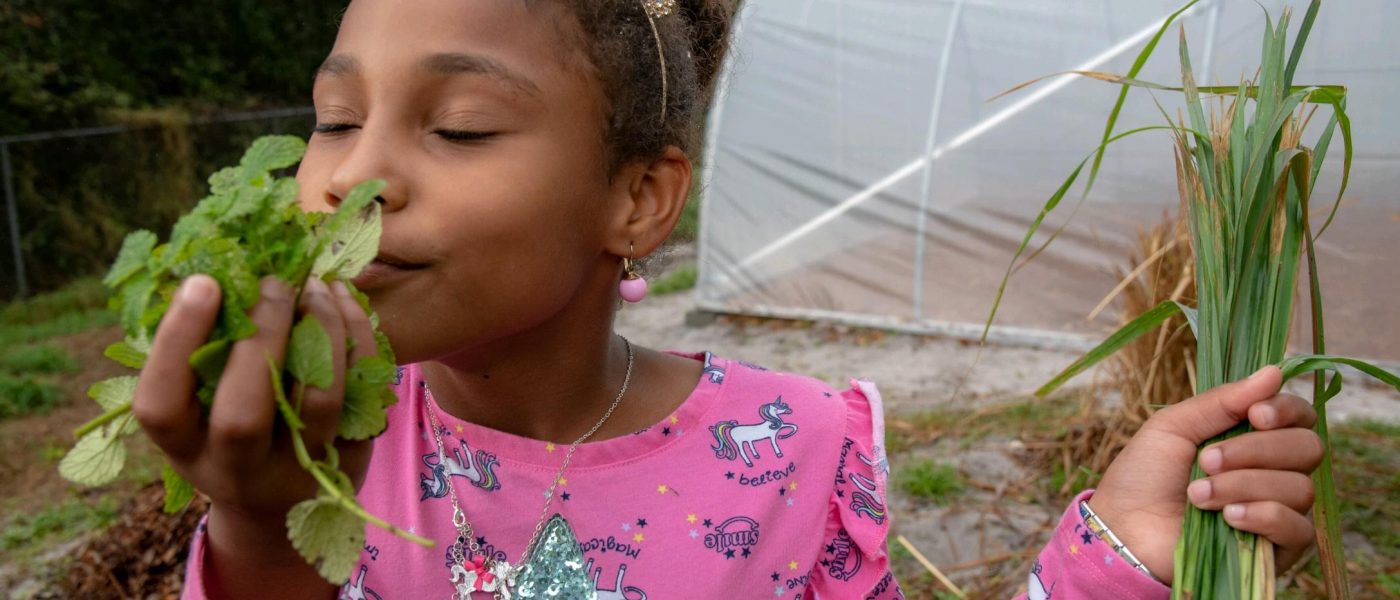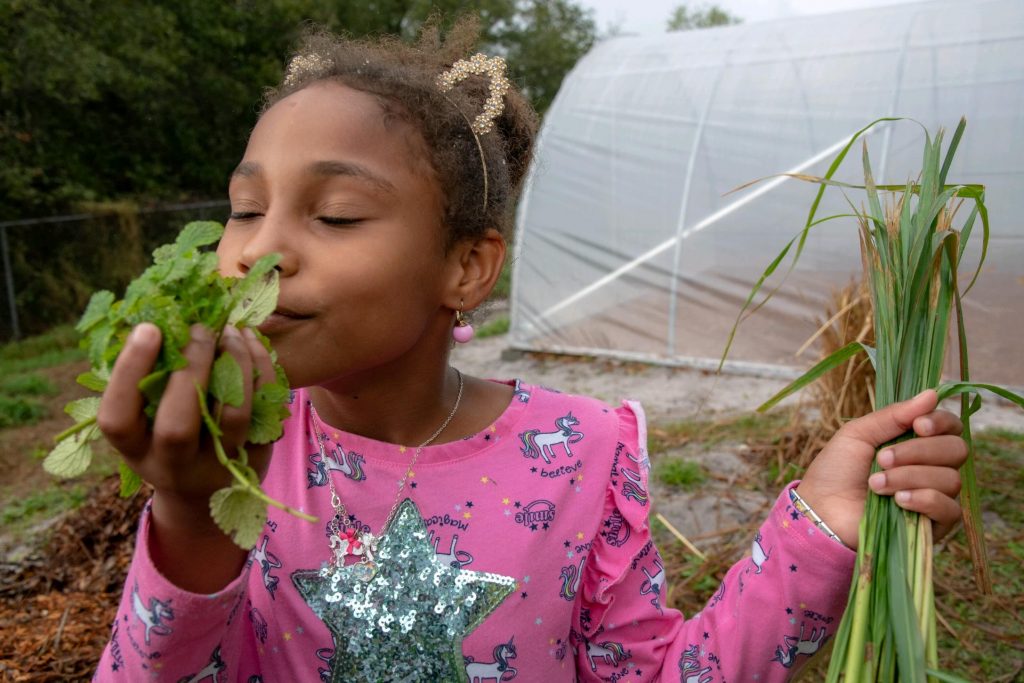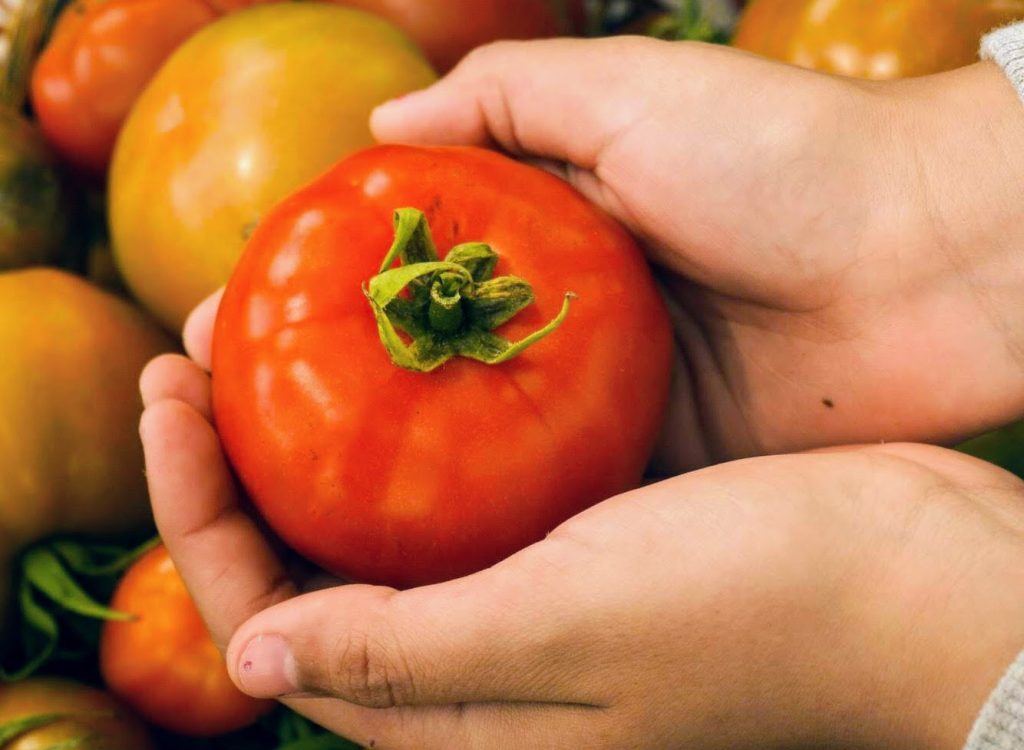Farm Aid partners with organizations all over the country to work towards our mission of creating a family farm-centered system of agriculture in America. Since our first concert in 1985, we’ve granted over $24 million to more than 300 organizations, creating a strong network of allies to keep family farmers on the land. Each year, grantees report back on what they’ve accomplished.
This post features stories from two of our grantees, the Chicago Botanic Garden and the Farmworker Association of Florida. We’re excited to highlight our partners who work with farmers and farmworkers in urban environments.
We’ve condensed and edited each statement for clarity, but the following are our grantees’ own stories in their words. We hope you’ll be as inspired as we are by the uplifting work that’s happening all over our country.
Chicago Botanic Garden
The Chicago Botanic Garden’s Windy City Harvest (WCH) is a multi-pronged urban agriculture program that provides aspiring and emerging farmers with the knowledge, training and business skills necessary to become successful farmers in their communities. In doing so, the program creates jobs and provides healthy, fresh produce in areas of the city that are under-resourced and food-insecure.
In winter 2018, two residents from Chicago’s South Side opened Good Vibes Farm, which grows and sells produce through farm stands and a CSA, and works with Midwest Foods, a family-owned produce wholesale distributor. Sandra McCloud and Clinton Coates got their start at the Chicago Botanic Garden’s Windy City Harvest program. They learned a lot more than how to grow vegetables: the urban agriculture education and jobs-training initiative gave them the inspiration to grow their businesses. They are both graduates of the Apprenticeship program, and WCH’s incubator program helped them launch Good Vibes Farm.
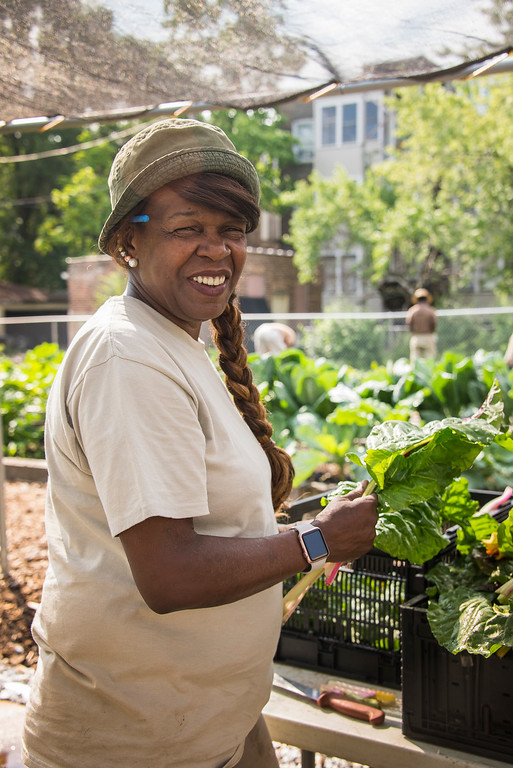
Sandra McCloud harvesting Good Vibes produce at the Windy City Harvest Incubator Farm. Photo: Chicago Botanic Garden.
The WCH Apprenticeship program develops the skills of emerging farmers and more experienced farm workers, and serves primarily low-income individuals, people of color, and those with significant barriers to employment, including ex-offenders. The nine-month Apprenticeship uses a hands-on, team-focused approach to introduce students to urban farm production, emphasizing sustainable practices.
Sandra McCloud began farming in 2015 during her time in the Windy City Harvest Corps transitional jobs program. There, she saw the power that local food has not only for individual’s health, but also for a community as a whole. With her hard work and passion, she continued on to the 2016 Apprenticeship program and then in 2017 became a crew leader for the Corps program, providing inspiration to other individuals previously involved with the justice system.
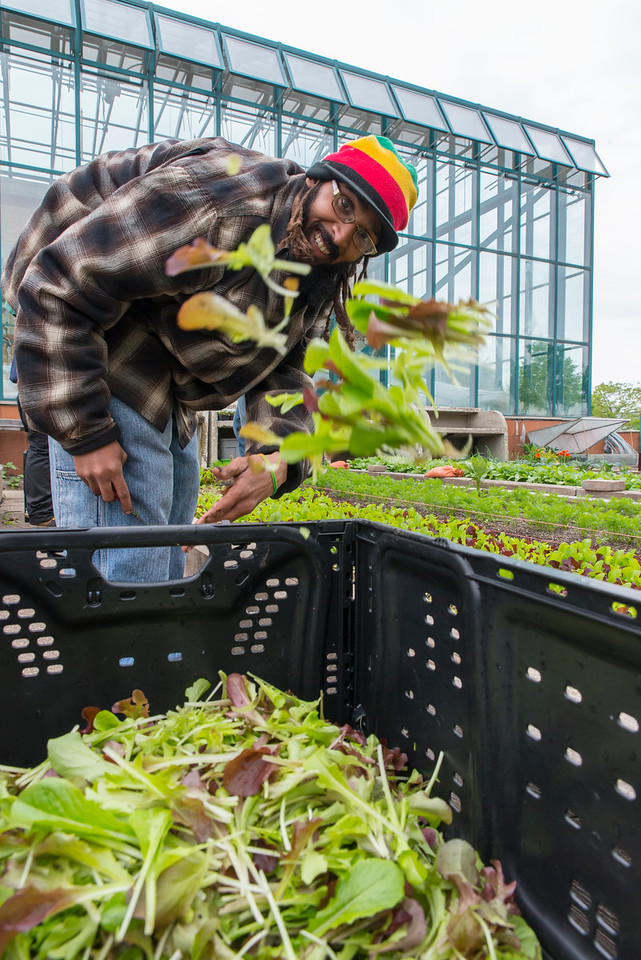
Clinton Coates harvesting lettuce at Arturo Velasquez Institute, City Colleges of Chicago, Windy City Harvest’s Apprenticeship training center. Photo: Chicago Botanic Garden.
Clinton Coates has always been an advocate for healthy, clean and just food for underserved communities. Having already had some personal experience with gardening and producing food for surrounding neighbors, he came to the Apprenticeship in 2016 to learn more about the technical skills of larger scale production. Clinton interned at Legends Farm, where he gained hands-on experience in production and community garden engagement. While there, Sandra and Clinton began talking about shared goals and the idea of Good Vibes Farm was seeded.
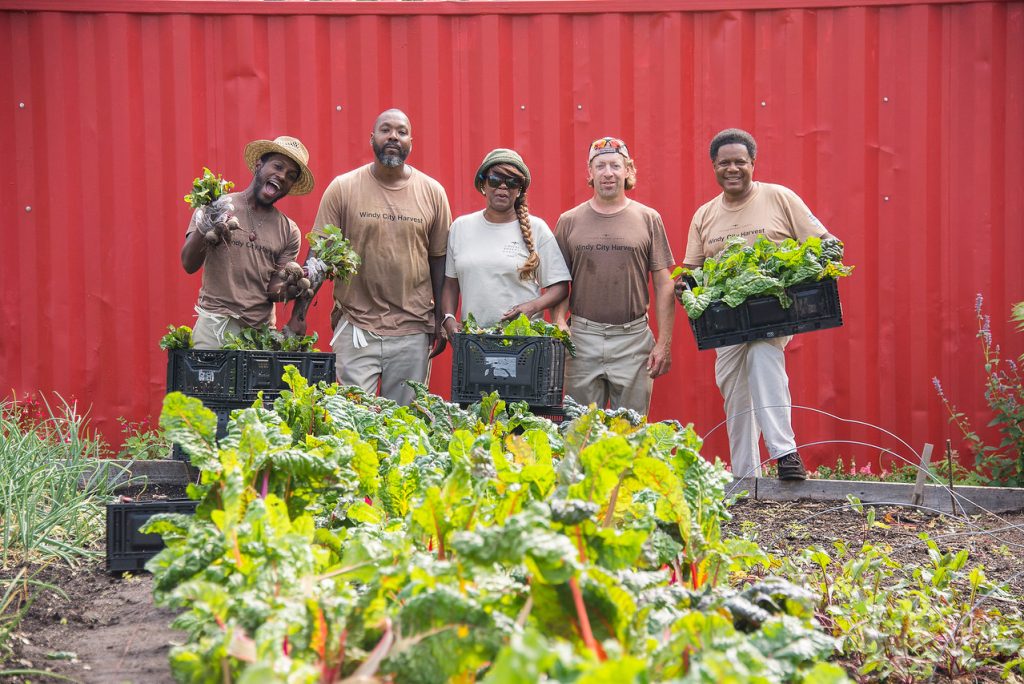
Sandra McCloud (center) with Windy City Harvest Corps Crew at Windy City Harvest’s Rodeo farm. Photo: Chicago Botanic Garden.
Sandra and Clinton say the WCH incubator program offers a unique opportunity because of the low startup cost, education and mentoring, and access to land, tools, markets and other resources. The program helps farmers overcome risks and financial barriers related to starting and growing small urban farm businesses. Windy City Harvest continues to help Sandra and Clinton: This year, they will build their brand, increase production, and continue to grow through the advanced incubator farm program.
Farmworker Association of Florida
The mission of Farmworker Association of Florida (FWAF) is to build power among farmworker and rural low-income communities to respond to and gain control over the social, political, workplace, economic, health and environmental justice issues that impact their lives.
Several years ago, a child was born to a farmworker family in one of the areas where FWAF has a Campesinos’ (community) Garden. Soon after he was born, they discovered that he had a rare skin disorder. As is often true in these cases, the parents and siblings rallied to provide whatever was needed to ensure a safe and healthy life for their newest family member. “I asked God to bring healing to my son, Lió,” said his mother, Rozanna.
In searching, she discovered that specific nutritional choices were a key factor to ensure her child’s healthy and normal development. “I also began to understand the damage done by the chemicals encountered in our foods. And so, we began changing our diet, eating less processed foods and making more natural and organic choices.” This change improved the health of the entire family, but also involved additional cost for purchasing organic fruits and vegetables.
About a year ago, Rozanna learned about FWAF’s Campesinos’ Gardens project. Utilizing lands owned by local government, the Campesinos’ Gardens model engages primarily farmworker families in meaningful sustainable agriculture efforts. Ironically, farmworkers who work to provide food for the masses often have little access to affordable fresh foods for their own families. Through family memberships in the garden, engaged gardeners learn to work with the earth’s natural systems to produce delicious, nutritious food without the use of chemical pesticides and fertilizers. Simultaneously, their skills and potential as small farmers are enhanced. Through the three Campesinos’ Gardens, FWAF distributed locally-grown, organic fresh foods to 324 families in 2017, including more than 900 children.
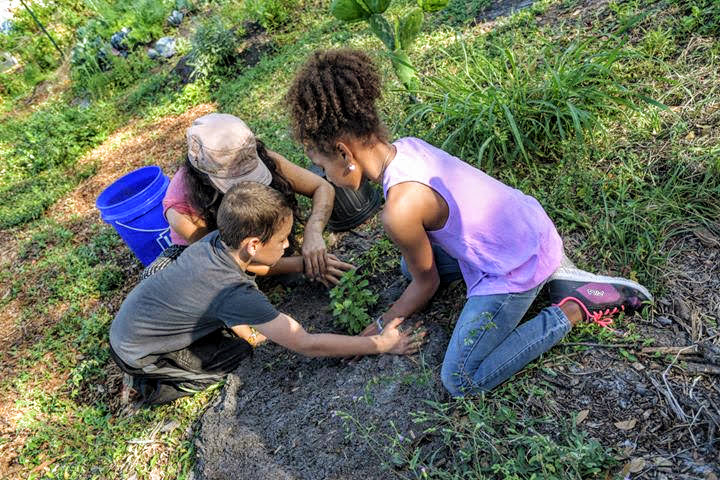
Children and family members prepare the soil and plant without the use of pesticides or chemical fertilizers. Photo: Laura Abram
Rozanna enthusiastically set up her family’s garden bed and became active with the local Campesinos’ Garden group. Growing their own vegetables has helped the family budget and has enabled them to increase the amount of fresh, chemical-free produce in their diet. From their garden patch, Rozanna has even been able to share fresh vegetables with some of their neighbors as well. “Being part of the community garden has been a blessing,” she says. “What we are learning here is helping us implement healthy choices at home.” Combining medical care and healthy diet, Lió is growing and healthy. The family is committed to continue doing all they can to make his life normal and fulfilled.
